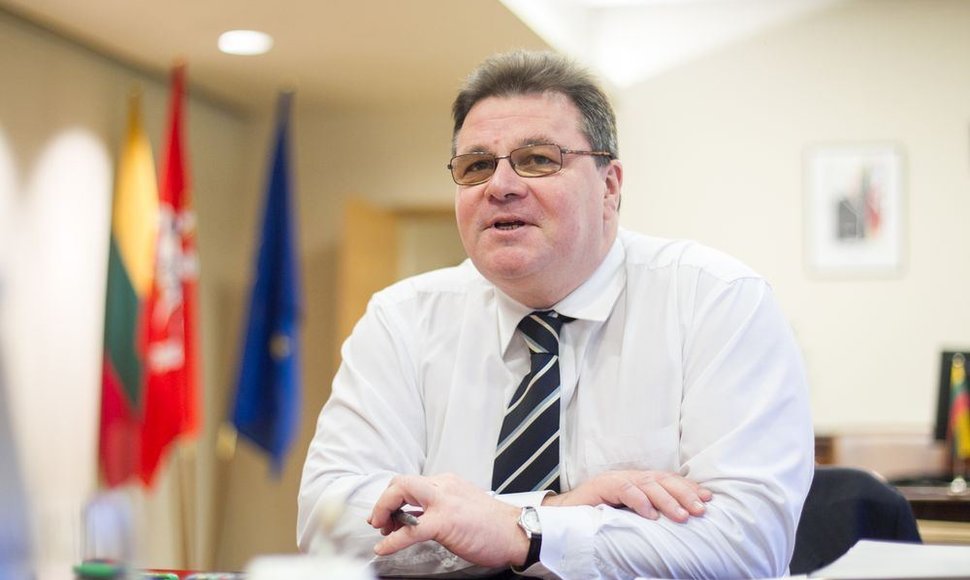In an address to a Vilnius conference of Lithuanian ambassadors residing abroad, the minister said that such steps "should not be taken at the expense of values."
"Of course, I have to mention Belarus. As always, many things can be said here. We also believe that Belarus will choose a path to Europe. The belief... we sometimes get frustrated and again there's sometimes a chance. Patience and consistency are our task," the minister said in a presentation of Lithuania's foreign policy priorities.
"Journalists sometimes ask us whether we prefer human rights to cargo in Klaipėda. Everything is important, and everything is possible: cargo in Klaipėda, which I hope is there and will continue to be there, as this is a pragmatic interest, but it is also important to have political prisoners released so that they do not have to suffer for having beliefs different from those of the administration," said Linkevičius who was Lithuania's ambassador to Belarus for four months prior to his appointment to head the Foreign Ministry.
At a meeting with Belarusian Prime Minister Mikhail Myasnikovich in Klaipėda in April, Lithuania's Prime Minister Algirdas Butkevičius said he is expecting a thaw in the EU-Minsk relations, saying Lithuania's presidency over the European Union (EU) Council in the second half of 2013 could contribute to this.
Butkevičius then said his Belarusian counterpart could be invited to the EU Eastern Partnership summit in Vilnius in November.
Unlike the Belarusian president and foreign minister, the PM is not on the EU's black list, which includes individuals banned to enter the EU because of their involvement in repressions against the opposition.
Lukashenko, the Belarusian leader since 1994, took rigid measures against the opposition in response to protests that started in the wake of the 2010 presidential election.












